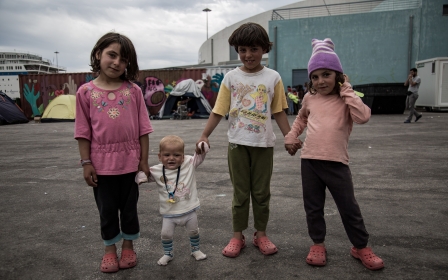Turkey visa move suggested by British diplomat: Reports

A UK diplomat has said proposed visa-free travel in Europe for some Turkish nationals could be extended to the UK, The Sunday Times has reported.
The diplomat suggested the move for Turkish “special passport” holders, who are mainly civil servants, according to leaked documents seen by the newspaper.
The European Union agreed in March to offer Turks visa-free access to the Schengen area by July as part of a deal for accepting more refugees, but Turkey has yet to fulfil most of the requirements laid out by European Commission officials.
The Schengen area, which does not include the UK, is a 26-member block of EU countries that have opened up internal borders, enabling passport-free travel.
The UK home and foreign secretaries said any suggestion of changing visa arrangements for Britain were “completely untrue”.
The leaked documents, sent last month by Janet Douglas, the UK’s deputy head of mission at the British Embassy in Ankara, relate to the EU's own visa plan with Turkey. The deal was offered in return for Turkey taking back refugees who cross the Aegean Sea to Greece.
Last month, the British government said Turkey joining the EU was not ”remotely on the cards,“ saying the UK had a veto on any prospective member joining the grouping.
In one of the leaked documents, Douglas said that when the EU deal is implemented ”we will need to develop our own lines on the UK's stance to visa-free travel for Turks".
“One option would be to assess again the possibility of visa travel for Turkish special-passport holders which would be a risk, but a significant and symbolic gesture to Turkey.”
Douglas also warned that any failure to bring in the visa-free travel deal could prompt Turkey to “open the floodgates” and allow those fleeing Syria and elsewhere easier access to the EU.
Former British cabinet minister Iain Duncan Smith, who is calling for Britain to leave the EU, told The Sunday Times that the leaked documents showed British Prime Minister David Cameron was involved in an “appalling deceit” with EU officials to keep the planned deal secret until after the UK's 23 June referendum on whether to stay in the EU.
He told the newspaper: “They say nothing is happening about Turkey, but this shows they are already making official plans to allow visa-free access for Turkish citizens.
”The attempt to hide this, and to delay key decisions until after the referendum, is cynical in the extreme.“
British Foreign Secretary Philip Hammond and Home Secretary Theresa May, both of whom back the campaign to remain in the EU, said the story was “completely untrue”.
In a joint statement they said: “The government's policy is, and will remain, to maintain current visa requirements for all Turkish nationals wishing to visit the UK, regardless of what arrangements other member states in the Schengen area may make with Turkey.
”Schengen visas do not give anyone the right to access the UK.
“The purpose of diplomatic telegrams is for our embassies around the world to feed back information on the position and views of foreign governments. They are reports from our diplomatic posts, not statements of British government policy.“
Turkey has failed to change its anti-terrorism laws to meet EU concerns over human rights, required by Brussels if the deal is to go ahead.
The leaked documents relate to special passports, which are primarily held by civil servants, their partners and their unmarried children below the age of 25. There was no suggestion that these passport holders would have access to work within the EU.
Stay informed with MEE's newsletters
Sign up to get the latest alerts, insights and analysis, starting with Turkey Unpacked
Middle East Eye delivers independent and unrivalled coverage and analysis of the Middle East, North Africa and beyond. To learn more about republishing this content and the associated fees, please fill out this form. More about MEE can be found here.




